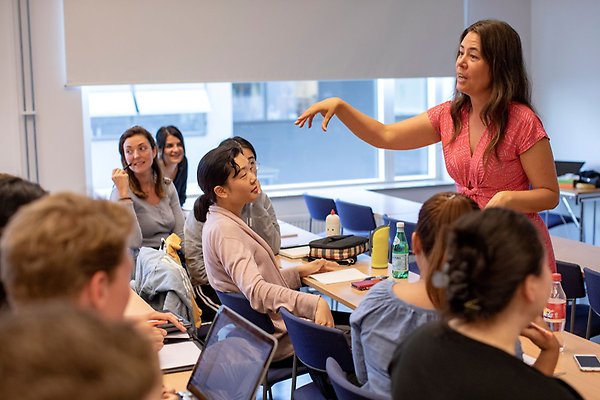Ulrika Persson-Fischier, researcher in sustainability, entrepreneurship and tourism

Photo: Mikael Wallerstedt
Ulrika Persson-Fischier works at the Department of Engineering Sciences and conducts research into sustainability, tourism and visitor trade, entrepreneurship and culture. She is part of ‘Sustainable Visits’, a multidisciplinary research programme at the university campus on the island of Gotland where she researches visitor trade and sustainability in the Case Gotland project.
In which way do you work work with sustainability?
“I try to see my research areas from the three different dimensions of sustainability: economy, ecology and sociology. I work with the 17 sustainable development goals, and in my research the 17th goal is central – strengthening the means of implementation. I focus on forms of collaboration for sustainability. I always aim to work in collaboration with research subjects such as actors within the tourism industry on Gotland, which I have a close working relationship with. Together we explore how sustainability can be achieved.”
Do you work together with other parts of the University today?
“Yes, with various departments such as business studies, economic history and earth sciences in sustainable visits. I also collaborate with the University’s International Office on sustainability-related projects as well as with CEMUS, SWEDESD and Uppsala University Innovation.”
What progress have you made recently?
“Identifying work methods that will help achieve sustainability is of greatest importance both in terms of scientific discoveries and the actual impact this has on our society as a whole. Since I work closely with actors in the tourism industry I am influenced by how they work together to achieve sustainability, and I am able to influence how they work too.”
Which do you think are the main future challenges in your field?
“Sustainability requires interdisciplinary skills in ecology, economy and sociology. This goes against the way in which universities are structured and how we accumulate skills in general. Too often, researchers focus on only one aspect of their work which makes sustainability difficult to achieve. This is one of the most important things that needs to be addressed. Nor do researchers seem to know what they actually mean when they say that they are researching sustainability. The term ‘sustainability’ is all too often used as an empty buzzword. This needs to change.”
Which cooperations and initiatives would you like to see in the future?
“All forms of cross collaborations will be of crucial importance in the future. In addition to this, all collaborations within the society and with innovation offices will need to focus on sustainability. Bridges must be built between research and education for sustainability, which must go hand in hand. Research on sustainability has a lot to learn from education for sustainability, both in what CEMUS and SWEDESD are doing. Researchers know too little about sustainability. As Programme Director for the newly established Master’s Programme in Sustainable Destination Development, I myself have had a lot of help from SWEDESD in adding a sustainable perspective to the study programme. The same type of work could be done with researchers, to help them add a sustainability perspective to their research.
